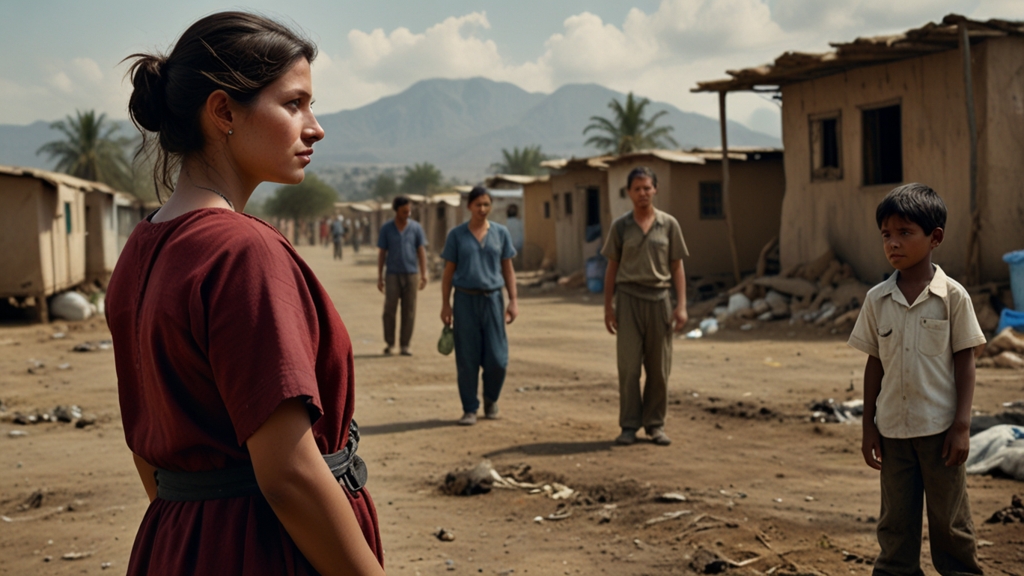Exploring the Unethical Side of Humanitarian Efforts
Humanitarian efforts are often seen through a lens of benevolence, compassion, and altruism. The image of aid workers tirelessly providing support in disaster-stricken areas or conflict zones evokes a sense of global solidarity. However, underneath this layer of goodwill lies a complex web of ethical dilemmas, financial mismanagement, and unintended consequences that often go unnoticed. This article aims to shed light on the darker aspects of humanitarian efforts, offering a more nuanced perspective.
The Problem of Paternalism
One of the primary criticisms of humanitarian efforts is the paternalistic attitude that can accompany them. This involves aid organizations imposing their views and solutions on local communities without considering the latter’s cultural, social, and economic contexts. Such an approach can lead to a dependency culture where local populations rely on external aid rather than developing their self-sufficiency.
“When Western organizations ignore local expertise and instead push their own agendas, the result is often well-intentioned but poorly executed aid projects.”
Critics argue that paternalism not only undermines local authority but also perpetuates a cycle of dependency. Instead of empowering local communities, these efforts can erode indigenous knowledge systems, thereby weakening the very fabric of the society they aim to support.
Financial Mismanagement and Corruption
Financial mismanagement and corruption are other significant issues plaguing the humanitarian sector. The sheer volume of money flowing into humanitarian aid creates opportunities for fraud and embezzlement. In some cases, funds intended for relief efforts end up lining the pockets of corrupt officials and middlemen.
Inadequate oversight and complex supply chains make it difficult to track how funds are spent, leading to inefficiencies and wastage. In extreme cases, these financial irregularities have resulted in the complete failure of aid projects, leaving crisis-affected populations in a worse state than before.
“Transparency and accountability are not just buzzwords; they are essential for ensuring that humanitarian aid reaches its intended beneficiaries. Without rigorous financial oversight, the credibility of aid organizations is compromised.”
Unintended Consequences and Long-Term Impact
While the immediate goal of humanitarian efforts is to provide quick relief, the long-term consequences often receive less attention. Emergency interventions can sometimes disrupt local economies and social structures, leading to unintended negative outcomes. For example, pouring large amounts of free food and supplies into a community can devastate local markets, pushing small businesses and farmers into insolvency.
Moreover, the presence of international aid organizations can create power imbalances, where external actors wield significant influence over local governance. This can result in policies and practices that prioritize international interests over local needs, further marginalizing vulnerable populations.
The Way Forward
To address these issues, a multifaceted approach is required. First and foremost, humanitarian efforts must be rooted in the principles of respect and collaboration with local communities. Engaging local leaders and organizations can help ensure that aid interventions are culturally sensitive and sustainable.
Improving transparency and accountability mechanisms is also crucial. Independent audits, real-time tracking of funds, and public disclosure of financial information can go a long way in mitigating corruption and financial mismanagement.
Finally, a shift from short-term relief to long-term development is essential. Humanitarian organizations should focus not only on immediate needs but also on building resilience and capacity within local communities. This means investing in education, infrastructure, and economic opportunities that enable communities to recover and thrive independently.
“Humanitarian aid should be a bridge, not a crutch. Empowering local communities to take charge of their own recovery is the ultimate goal.”
In conclusion, while humanitarian efforts play a vital role in providing immediate relief during crises, they are not without their ethical challenges. By acknowledging and addressing these issues, the humanitarian sector can move towards more effective, equitable, and sustainable interventions. The path to ethical humanitarianism is not easy, but it is a journey worth undertaking for the sake of those who need help the most.






